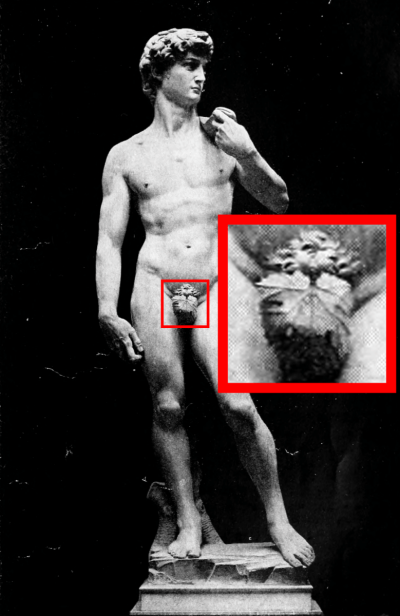The Nazi book burnings were a campaign conducted by the German Student Union (German: Deutsche Studentenschaft, DSt) to ceremonially burn books in Nazi Germany and Austria in the 1930s. The books targeted for burning were those viewed as being subversive or as representing ideologies opposed to Nazism. These included books written by Jewish, communist, socialist, anarchist, liberal, pacifist, and sexologist authors among others. The initial books burned were those of Karl Marx and Karl Kautsky, but came to include very many authors, including Albert Einstein, Helen Keller, writers in French and English, and effectively any book that was not ardent in its support of Nazism. In a campaign of cultural genocide, books were also burned by the Nazis en masse in occupied territories.
Censorship is the suppression of speech, public communication, or other information. This may be done on the basis that such material is considered objectionable, harmful, sensitive, or "inconvenient". Censorship can be conducted by governments, private institutions and other controlling bodies.
Governments and private organizations may engage in censorship. Other groups or institutions may propose and petition for censorship. When an individual such as an author or other creator engages in censorship of his or her own works or speech, it is referred to as self-censorship. General censorship occurs in a variety of different media, including speech, books, music, films, and other arts, the press, radio, television, and the Internet for a variety of claimed reasons including national security, to control obscenity, pornography, and hate speech, to protect children or other vulnerable groups, to promote or restrict political or religious views, and to prevent slander and libel.
Direct censorship may or may not be legal, depending on the type, location, and content. Many countries provide strong protections against censorship by law, but none of these protections are absolute and frequently a claim of necessity to balance conflicting rights is made, in order to determine what could and could not be censored. There are no laws against self-censorship.

1933May, 10
Censorship: In Germany, the Nazis stage massive public book burnings.
Choose Another Date
Events on 1933
- 3Feb
Third Reich
Adolf Hitler announces that the expansion of Lebensraum into Eastern Europe, and its ruthless Germanisation, are the ultimate geopolitical objectives of Third Reich foreign policy. - 5Jun
Gold standard
The U.S. Congress abrogates the United States' use of the gold standard by enacting a joint resolution (48 Stat. 112) nullifying the right of creditors to demand payment in gold. - 14Jul
Nazi Party
Gleichschaltung: In Germany, all political parties are outlawed except the Nazi Party. - 19Oct
League of Nations
Germany withdraws from the League of Nations. - 8Nov
New Deal
Great Depression: New Deal: US President Franklin D. Roosevelt unveils the Civil Works Administration, an organization designed to create jobs for more than 4 million unemployed.

 English
English  español
español  français
français  português
português  русский
русский  العربية
العربية  简体中文
简体中文 